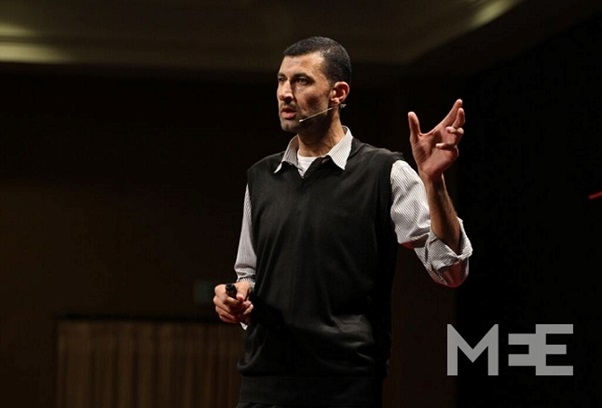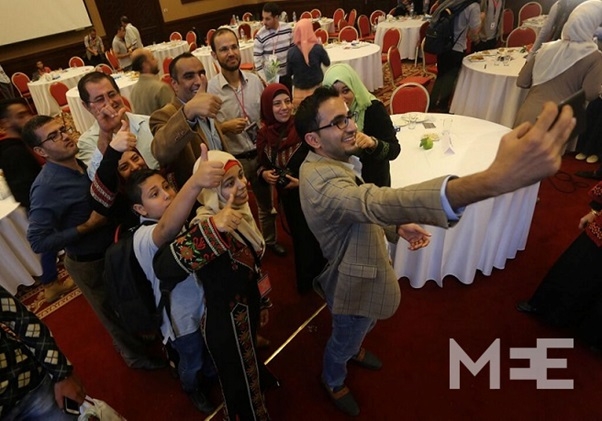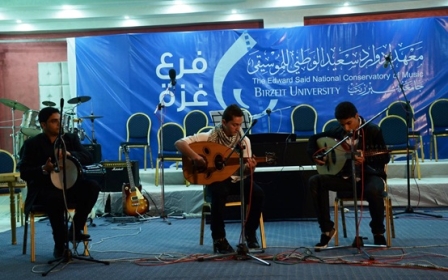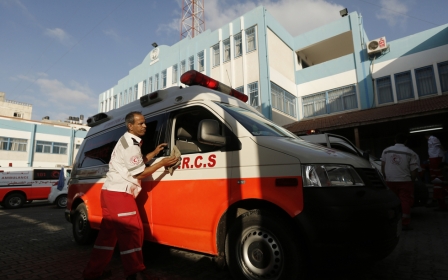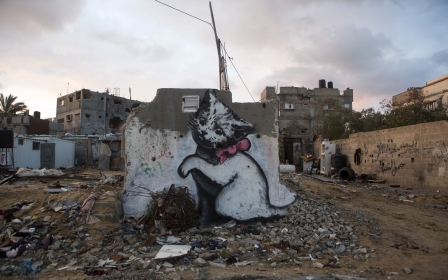TEDx in Gaza: Palestinians bring personal stories to the world stage
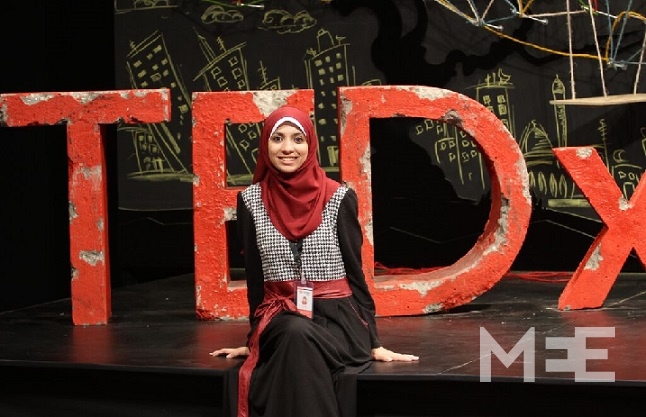
GAZA CITY, Occupied Palestinian Territories - Though moments of excitement in Gaza can be rare, local youth have been waiting for several months for one event to take place: TEDx Shujaiya.
On 29 October, Palestinians gathered at a Gaza hotel for a TEDx event - that is, an independently organised conference of TED talks - comprised of 12 speakers, presented in English and Arabic. They spoke to an audience of over 100 people about struggle, determination and success in the Gaza Strip.
The event was independently organised by Gaza-based volunteers and drew passionate reactions from participants and viewers.
“The idea comes from a shared belief that the team should have a high podium from which to speak to the world, to shed light on the ideas of creative and distinguished people in the besieged Gaza Strip," said 24-year-old Heba Madi, the lead organiser of the event.
Madi said her team received a license to launch TEDx Shujaiya in June 2015 after establishing contact with the global TED organisation in January. Though not directly involved, TED provided the guidelines and a license for the Gaza conference.
TEDx Shujaiya's team was mostly comprised of youth - the oldest participant being 25-years old - who want new and worthy voices from war-torn Gaza to be heard.
Madi said that she hoped to get permission to use TEDx Gaza as the name of the event, but TED refused to allow the name. The team then selected the name Shujaiya - a neighbourhood in eastern Gaza City that witnessed some of the worst Israeli shelling during the 2014 Gaza war. In what some call the "Shujaiya massacre" in July, Israeli strikes killed least 66 Palestinians, 55 of them civilians. The Shujaiya neighbourhood now holds a special significance for many in Gaza.
This initial TEDx Shujaiya event brought some remarkable Palestinian voices to the fore. One of the speakers was Ahmed al-Faleet, a former prisoner in Israeli jails who was released in a prisoner exchange deal in 2011.
“When I first saw the sea again, I wanted to embrace it,” said al-Faleet, describing the moment he was taken out of his cell after 20 years in Israeli captivity.
Gaza's youth are continuously calling for their voices to be heard, particularly through online audience events, in hopes of changing global perspectives on how Gaza is portrayed in the media. They want Gaza to be seen not just as a war-torn, blockaded enclave, but also a place with 1.8 million human beings, many of whom are young, intelligent, proactive and hopeful for a better, peaceful future for Palestine.
“We need the world to know that we are a nation that loves life,” a young participant told Middle East Eye after the event.
Mazen al-Sayed, a young expert in software development and project management, shared his experience of how the lessons he has learned playing chess – including patience, self-assurance and confidence - can be applied to the lives of all Palestinians.
"If someone said to you: ‘your value equals the value of this chess piece I hold in my hand,' how would you feel?” he asked, holding up a pawn.
Al-Sayed went on to explain that each piece plays a vital role on the board - without which the game cannot be played.
"Everyone in this room has value," he said.
The event continued with a musical performance by twins: 19-year-old student Ghada Shoman and her brother Mohammed Shoman sang a song for Palestine.
'An apple, in prison, is joyful'
One young lady attending the event told MEE that she was inspired by al-Faleet's story in particular.
“I learned so much from the experience of a man in jail,” she said.
Al-Faleet surprised the audience by explaining his own method of coping with the bondage of his cramped Israeli prison cell.
“When people ask me my age, I tell them I am four years old,” said the 45-year-old. He explained to the TEDx audience: “I was re-born on the day I was released from my Israeli prison cell.”
But Al-Faleet's message resonated with many of the youth who have not experienced first-hand what it was like to be held in an Israeli prison for indefinite detention, without due legal process.
“We were so happy to get an apple inside the prison cell, we would keep it as long as possible, then eat it only before it became rotten. We took turns in holding it in our hands before we slept - as evidence of the natural world outside the prison walls.”
Al-Faleet also explained how his personal identity was stripped from him.
“I was turned from Ahmed al-Faleet into this number, 1044036, which I called out three times a day,” he said on the stage of TEDx Shujaiya.
Cheers of encouragement came from the audience after al-Faleet told the audience: “We have not reached the point of breakdown ... I finished my BA studies in International Relations and my MA in Public Management.”
Of the 32,000 university students who graduate annually from Palestinian universities, 56 percent are unwillingly unemployed, due to Israel’s economic blockade on Gaza.
Unemployment among male graduates is the highest, standing at 75 percent, according to the Palestinian Statistics Bureau. For these youth who face a challenging future, the narratives told at the TEDx event about tenacity, grit and optimism were a valuable addition to their tool belt.
Though most of the audience members were supportive of the event, 29-year-old Ghada Rabah said she questioned the selection of speakers.
“There was no clear explanation of the criteria used to determine who the speakers should be,” she said, adding that conducting the event in a five-star hotel was the antithesis of the plight endured by the residents of Shujaiya, an area that is left in ruins.
But the intention of the organisers of the TEDx event was to create a beautiful image from the ruins of Shujaiya - conveying the human resilience that the world must recognise when talking about besieged Gaza. The organisers said they wanted to produce something that was uniquely made in Palestine.
“We have always been perceived as those living in a war-torn area, but now we want to show another side, one with hope and ideas through the stage of TEDx,” said Asem Alnabeh, a social-media member of TEDx Shujaiya.
“We wanted to do something for us, and by us, and purely Palestinian."
TED is the non-profit organisation committed to engaging communities in dialogue and stirring interest and curiosity about new knowledge. The organisation was born out of a four-day conference held in California in 1984.
Middle East Eye propose une couverture et une analyse indépendantes et incomparables du Moyen-Orient, de l’Afrique du Nord et d’autres régions du monde. Pour en savoir plus sur la reprise de ce contenu et les frais qui s’appliquent, veuillez remplir ce formulaire [en anglais]. Pour en savoir plus sur MEE, cliquez ici [en anglais].


